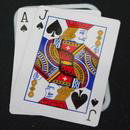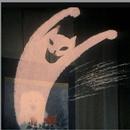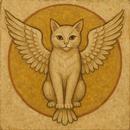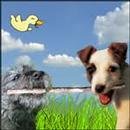Subject: EDQ #3: Plagiarism
Posted by: LeoDaVinci
Date: Apr 08 13
Plagiarism - The Big P
In this day and age where vast amounts of information are easily accessible at the click of a mouse, it's very easily to lose one's self in the formidable pile of research that you might encounter. Yea, it's easy to be overwhelmed when you don't know much about a certain subject (and sometimes even if you do) and to fall into the trap of plagiarism. While most people understand some forms of plagiarism, it's a much more complicated subject than you might initially think. FunTrivia enforces a strict no-tolerance policy for all forms of plagiarism and it's easy to get dismayed if an editor points out to you that you've done so in a question or in a quiz.
First of all, what is plagiarism? Dictionary.com describes it as "an act or instance of using or closely imitating the language and thoughts of another author without authorization and the representation of that author's work as one's own...". Let's look at that definition closely:
When you copy and paste from another website, or copy word-for-word out of a book or other reference material, this is the easiest type of plagiarism that you can commit. You take another person's work and you're using it in the information of your quiz as though you wrote it yourself. I'm sure you can all agree with me how wrong that is. Even if you change a few words while using a thesaurus while keeping the original sentence as is, it's still considered copying someone else's work.
What does FunTrivia require of us? Well, as mentioned before about interesting information, we're required to give at least one sentence, if not more, of original interesting information for each and every answer to our questions in a quiz. This means that you're going to have to do some work, especially if you're not up-to-speed on all of the ins and outs of a particular topic that you're writing about. Using a quote is usually great, but, it doesn't count as part of the original sentences that you're required to write. A quote or sourced work is great to help punctuate your interesting information and to get your point across, similar to what I did above with the quote from dictionary.com, however, again, it doesn't go towards the final sentence count.
Can I plagiarize myself? If you copy your own work from another site, a paper you might have written once, or another quiz on this site, you're still plagiarizing if you don't cite your source.
A technique of mine to avoid plagiarism is as follows. Say I'm writing a quiz about sea birds and I have a question about the Marbled murrelet, something I know literally nothing about, what do I do? The first thing I do is I look up the Marbled murrelet in Google and I open up a few sources, and not necessarily Wikipedia. I'll read through these sources and, though some information might be similar in some of the sources I have, it's important to read through all of the parts I want to draw inspiration from. I'll take a pen and paper (or sometimes I'll open up a text file in Notepad) and I'll write down some dry facts and numerical data, things that I can't be expected to remember unless I was the world's leading expert on these birds (and even then, I'd probably look it up anyway). Finally I'll CLOSE all of my sources that I've read through and I'll write a short paragraph of interesting information about the Marbled murellet for my quiz. By closing all of the sources after I've read through them, it ensures that I will not copy anything, and by reading through more than one source, my mind retains the information that's actually INTERESTING and that's what I will write down. In my own words, naturally. I'll use my notes to insert the numerical information, and I'll have a good paragraph about a sea bird I knew nothing about before I wrote my quiz. The paragraph might look something like this:
"The Marbled murrelet is a small seabird that lives on the North American side of the northern Pacific Ocean, mostly in Alaska. They generally reach a size of up to 25cm in length and their clutch of eggs consists of only one egg. Generally considered to be an endangered species with an, the Marbled murrelet nests in old forests with large trees and the logging industry on the west coast of North America is severely limiting the nesting grounds for these birds. Other than humans, however, the murrelets can fall prey to Steller's jay and to the common raven. They generally feed on small saltwater fish and invertebrates, though some rare sightings have seen these plump birds feeding in freshwater lakes."
This paragraph was done with the help of several websites, none of them wikipedia. I'm not against wikipedia, however, it is generally preferred that if you do use a quote in your interesting information, please quote from a more credible website.
In any case, I've outlined all the ways that you might plagiarize, and one method to avoid it. You're all free to find your own ways to do research, but remember, if you need to give credit, please do it. It is clear to all the editors that there are only so many ways to state certain facts, for instance, "The peak of Mount Everest rises 8848m above sea level." However, if I wrote: "On May 29, 1953, Edmund Hillary, a New Zealand beekeeper, and Tenzing Norgay, an acclaimed Sherpa climber, became the first to reach the roof of the world.", it's clear that the information was lifted off of factmonster.com.
FunTrivia doesn't allow any form of plagiarism. None. If your quiz is found to have material from another source in it that's unattributed, an editor will call you out on it. This doesn't mean that you've been blacklisted forever, and you're given a chance to correct your mistake. However, insistence that you've done no wrong, or repeated attempts to slip copied information past the editors will result in a loss of your authorship privileges for a period. Afterwards, repeated infractions can result in longer losses of writing privileges up to a permanent ban. This only happens in extreme cases.
We're all humans and we all make mistakes. However, this is one mistake we all can avoid if we put a little bit of effort into our research and make sure that everything we write in our quizzes and in our questions is in our own words.
I look forward to seeing all of your quizzes in the queues.
Posted by: LeoDaVinci
Date: Apr 08 13
Plagiarism - The Big P
In this day and age where vast amounts of information are easily accessible at the click of a mouse, it's very easily to lose one's self in the formidable pile of research that you might encounter. Yea, it's easy to be overwhelmed when you don't know much about a certain subject (and sometimes even if you do) and to fall into the trap of plagiarism. While most people understand some forms of plagiarism, it's a much more complicated subject than you might initially think. FunTrivia enforces a strict no-tolerance policy for all forms of plagiarism and it's easy to get dismayed if an editor points out to you that you've done so in a question or in a quiz.
First of all, what is plagiarism? Dictionary.com describes it as "an act or instance of using or closely imitating the language and thoughts of another author without authorization and the representation of that author's work as one's own...". Let's look at that definition closely:
When you copy and paste from another website, or copy word-for-word out of a book or other reference material, this is the easiest type of plagiarism that you can commit. You take another person's work and you're using it in the information of your quiz as though you wrote it yourself. I'm sure you can all agree with me how wrong that is. Even if you change a few words while using a thesaurus while keeping the original sentence as is, it's still considered copying someone else's work.
What does FunTrivia require of us? Well, as mentioned before about interesting information, we're required to give at least one sentence, if not more, of original interesting information for each and every answer to our questions in a quiz. This means that you're going to have to do some work, especially if you're not up-to-speed on all of the ins and outs of a particular topic that you're writing about. Using a quote is usually great, but, it doesn't count as part of the original sentences that you're required to write. A quote or sourced work is great to help punctuate your interesting information and to get your point across, similar to what I did above with the quote from dictionary.com, however, again, it doesn't go towards the final sentence count.
Can I plagiarize myself? If you copy your own work from another site, a paper you might have written once, or another quiz on this site, you're still plagiarizing if you don't cite your source.
A technique of mine to avoid plagiarism is as follows. Say I'm writing a quiz about sea birds and I have a question about the Marbled murrelet, something I know literally nothing about, what do I do? The first thing I do is I look up the Marbled murrelet in Google and I open up a few sources, and not necessarily Wikipedia. I'll read through these sources and, though some information might be similar in some of the sources I have, it's important to read through all of the parts I want to draw inspiration from. I'll take a pen and paper (or sometimes I'll open up a text file in Notepad) and I'll write down some dry facts and numerical data, things that I can't be expected to remember unless I was the world's leading expert on these birds (and even then, I'd probably look it up anyway). Finally I'll CLOSE all of my sources that I've read through and I'll write a short paragraph of interesting information about the Marbled murellet for my quiz. By closing all of the sources after I've read through them, it ensures that I will not copy anything, and by reading through more than one source, my mind retains the information that's actually INTERESTING and that's what I will write down. In my own words, naturally. I'll use my notes to insert the numerical information, and I'll have a good paragraph about a sea bird I knew nothing about before I wrote my quiz. The paragraph might look something like this:
"The Marbled murrelet is a small seabird that lives on the North American side of the northern Pacific Ocean, mostly in Alaska. They generally reach a size of up to 25cm in length and their clutch of eggs consists of only one egg. Generally considered to be an endangered species with an, the Marbled murrelet nests in old forests with large trees and the logging industry on the west coast of North America is severely limiting the nesting grounds for these birds. Other than humans, however, the murrelets can fall prey to Steller's jay and to the common raven. They generally feed on small saltwater fish and invertebrates, though some rare sightings have seen these plump birds feeding in freshwater lakes."
This paragraph was done with the help of several websites, none of them wikipedia. I'm not against wikipedia, however, it is generally preferred that if you do use a quote in your interesting information, please quote from a more credible website.
In any case, I've outlined all the ways that you might plagiarize, and one method to avoid it. You're all free to find your own ways to do research, but remember, if you need to give credit, please do it. It is clear to all the editors that there are only so many ways to state certain facts, for instance, "The peak of Mount Everest rises 8848m above sea level." However, if I wrote: "On May 29, 1953, Edmund Hillary, a New Zealand beekeeper, and Tenzing Norgay, an acclaimed Sherpa climber, became the first to reach the roof of the world.", it's clear that the information was lifted off of factmonster.com.
FunTrivia doesn't allow any form of plagiarism. None. If your quiz is found to have material from another source in it that's unattributed, an editor will call you out on it. This doesn't mean that you've been blacklisted forever, and you're given a chance to correct your mistake. However, insistence that you've done no wrong, or repeated attempts to slip copied information past the editors will result in a loss of your authorship privileges for a period. Afterwards, repeated infractions can result in longer losses of writing privileges up to a permanent ban. This only happens in extreme cases.
We're all humans and we all make mistakes. However, this is one mistake we all can avoid if we put a little bit of effort into our research and make sure that everything we write in our quizzes and in our questions is in our own words.
I look forward to seeing all of your quizzes in the queues.
48 replies. On page 2 of 3 pages. 1 2 3
CmdrK 


|
Zippo - stuff happens. If 1,000 of us write a quiz about any given subject, whether Russia, ballet dancing or kumquats, there are not going to be 10,000 unique quiz questions. Something is going to get repeated. All perfectly innocent but someone will have to rewrite some questions. Half the things we worry about won't happen and we don't have any control over the rest. Oh wait, that was claimed by Kirby D. Payne, CHA but I heard it 30 years ago. :) Reply #21. Apr 11 13, 6:40 AM |
pollucci19 


|
How true CmdrK ... it's like the old joke ... "If you're one in a million in China, there's a thousand people just like you" Reply #22. Apr 11 13, 6:52 AM |
zippolover 

|
So there is nothing we can do when we get a slap in the chops and a sanction on out quiz writing and get frustrated when it was not even our fault? Reply #23. Apr 11 13, 7:13 AM |
WesleyCrusher


|
Another technique that can help you write in your own words even if you need to research can at first sound like an impossibility: Write first, then research it. That's right. Write your explanation or statement to the best of your knowledge. Then proofread that passage for spelling and grammar as if it were a finished product (to ensure your sentence structure is well established). Only then do you open your research site and make sure your facts are correct. If they're not, correct your writing with the least modification possible and it will still be in your own words, you corrected a name, number, fact or spelling. This does no longer work, however, if you need to make really major corrections based on your research because at that point, passages longer than one or two words could creep back into your writing, so be careful! So I could for example be writing a quiz about biological taxonomy. I want to create a question about the five kingdoms according to the established, late 20th century classification. I can however neither remember the fifth kingdom, nor the name of the biologist who established them or the exact year. So I write my first version before opening any book or research page: "According to the Linux classification of 1999, the five kingdoms are animals, plants, protista, fungi, and Funtrivians." Then I look it up and come up with the correct facts: The biologist's name was Whittaker, the year 1969 and I forgot about the monera. So, after fixing the facts, my final version is: "According to the Whittaker classification of 1969, the five kingdoms are animals, plants, protista, fungi, and monera." Reply #24. Apr 11 13, 7:31 AM |
jmorrow


|
Coincidences are always possible. By definition, a coincidence is a chance occurrence, so unfortunately there isn't much that an author can do to prevent such coincidences from occurring. If you find yourself in such a situation, write to your editor and explain your side of things. We are all reasonable people, and we are more than willing to give someone the benefit of the doubt. As has been said in another thread, the editors don't make a charge of plagiarism lightly. We are all authors too, and we know that there are only so many different ways to state certain facts. If a quiz submission contains only one or two short and/or borderline hits for copying, we are more than prepared to let it slide and chalk it down to inadvertence. Naturally, we would be more suspicious if the incidence of copying were more substantial, or if the similarities between the two works were so striking as to preclude the possibility that two different writers independently produced the same result. Also, don't rule out the possibility of subconscious copying or cryptomnesia. For our present purposes, this is where an author produces a piece of writing believing it to be his or her own original work when it is in fact derived from another source. In such cases, there is usually no intention to copy or plagiarize. Instead, the author may have forgotten that they had read or consulted the work in question, and reproduced the same wording or phrasing thinking that it is an apt or natural way of presenting the information. Thankfully, there are things that an author can do to minimize such occurrences. One method would be to make a note of the sources you consulted while writing your quiz, and revisit these sources when you are reviewing your final work to make sure that you have not reproduced anything by accident. Every writer has a different process, and something that works for one writer may not work as well for another. Speaking for myself, I actually like to keep my 'sources' close at hand when I am writing, as there have been times when I have written something I thought was original, only to find that I had reproduced the phrasing of something I had consulted during my research for the quiz that my mind just happened to retain. By keeping my sources close as I write, I find that I can make a more conscious effort at not reproducing something I may have read previously. Others have raised some great ideas and suggestions in this thread, so the trick is finding the approach that works for you and sticking with it. Reply #25. Apr 11 13, 7:57 AM |
agony


|
There's another issue which is linked to this, which I think might as well be addressed here, and that is "How do I quote, and what should I be quoting?" As for how to quote, some editors may have specific requirements, a certain way they want things presented. Absolutely necessary, in all cases, are quotation marks around the quoted passage, and an indication of where you got the quote, who said it. As John Author said in "Book with Title" (1996), "Blah blah blah." or "Blah blah blah" (John Author, "Book with Title", 1996) or some other way that lays the information out clearly. If you got it from a website, we'd prefer the website description rather than the url. "Blah blah blah", as John Author says on his blog, "Blogging with John Author". If you haven't actually read "Book with Title" but found a quote from it on Wikipedia or somewhere, you can say something like: "Blah blah blah" (John Author, "Book with Title", 1996, as quoted in Wikipedia) Again, certain editors may want something specific from you - they'll let you know, and you can just follow their instructions. Reply #26. Apr 11 13, 9:51 AM |
agony


|
Now - what to quote? Please do not give us direct quotes from websites like Wikipedia - places where you do not know the name of the person who wrote the passage. What you should be doing there is gleaning the facts, and writing them up yourself, in your own words. If you are using a direct quote - specific exact words in quotation marks - you need the name of the person who wrote those words. A side issue here are quotes from movies, television shows, songs, etc. In those cases, it's enough to give the title of the song or show, because anyone at all interested can easily find the name of the person who wrote them. What I'm dealing with here are quoted passages of factual information or opinion about the subject of the quiz. This isn't a plagiarism issue so much as one of quiz integrity. We don't want to read what some anonymous contributor to Wikipedia or Songfacts or other website has to say about the subject. We want to read what YOU have to say. Even if your quote from wiki is perfectly cited, we just don't want it. Put that information in your own words. There are quotes, though, that can really enhance a quiz. Sometimes someone has said something very witty or insightful about the subject of your quiz, and it would add a lot to the quiz flavour to include it. A good rule of thumb to follow in that case is "Would someone knowledgeable about the subject know this name?" What Paul McCartney had to say about Yoko Ono could be interesting to your quiz audience, but what an obscure blogger had to say? Not so much. A quote from Winston Churchill about WWII, a quote from Roger Ebert about a film director, a quote from Barack Obama about the US Constitution - those are quotes that can add something to your quiz. Names which are not household words, but belong to experts in the field - the historian, the scientist, the CEO of the company - can be used, with a brief description that shows us why we should care what this person has to say. If you're not sure, discuss it with your editor. But remember - we don't want the blurb from the back of the book jacket or DVD case, even if you cite it beautifully. Reply #27. Apr 11 13, 10:20 AM |
kyleisalive


|
Re: "So there is nothing we can do when we get a slap in the chops and a sanction on out quiz writing and get frustrated when it was not even our fault?" I'm sorry, but I don't think that this is what myself or the other editors are doing. We are 100% willing to help you (or any other authors) work on future submissions to avoid these issues. As myself and others have said before, sometimes plagiarism happens, intentional or not, and as such we have to follow protocol. There is no grey area with it because FunTrivia could get into a lot of legal trouble. We don't want to get official, legal documents (or even personal emails) asking us to remove submissions (and we have had to pull submissions before for these reasons). It's not pleasant for us; it's not pleasant for the author. We are not doing it to make you or anyone frustrated. We are doing it to ensure that it doesn't happen again. How willing authors are to work with us to improve standings and submissions is completely up to them; if this weren't true, we wouldn't be discussing it right now. Many authors do take offense to accusations of plagiarism (heck, a number of people take offense to mere suggestions). The best way to say it is that people need to find the fine balance between writing it with personal style and flair and stepping back from the work to look at it critically. If authors, even in book publishing, didn't do this, we'd have no published works. ;) Reply #28. Apr 11 13, 10:26 AM |
zippolover 

|
jmorrow said: Coincidences are always possible. By definition, a coincidence is a chance occurrence, so unfortunately there isn't much that an author can do to prevent such coincidences from occurring. If you find yourself in such a situation, write to your editor and explain your side of things. We are all reasonable people, and we are more than willing to give someone the benefit of the doubt. I am not saying that a sanction should be lifted, however if an author had worked with the Editor and the Editor agrees that it probably was co-incidental, then why does the FULL Sanction remain? I can only state how it seems to me and I am not having a go, but please try to see how it feels at my end to see others comment on how quick a quiz has got online when you have been waiting for days and no sign of an Editor. Reply #29. Apr 11 13, 10:48 AM |
agony


|
I don't think this is the place to discuss individual cases. Reply #30. Apr 11 13, 10:51 AM |
zippolover 

|
I am sorry. I cannot comment in general as I do not know how this affects others. Reply #31. Apr 11 13, 10:57 AM |
kyleisalive


|
Re: "I am not saying that a sanction should be lifted, however if an author had worked with the Editor and the Editor agrees that it probably was co-incidental, then why does the FULL Sanction remain?" As I have said before, please look at it from our perspective as well. Regardless of whether or not it was intentional, we need to look closer at subsequent submissions until we are 100% sure that the issues won't recur, otherwise we're stuck combing through every quiz from here until there (possibly including all of the author's earlier submissions). When it's clear that not only is the author willing to work with us to eliminate the issue but the quizzes are coming out fine and without red flags, their standing will naturally improve; why wouldn't it? This takes more than one or two quizzes. Keep in mind that many authors here in the Lounge have gone through this process, even some of the site's most famous names. They bounce back, even though this is, to an extent, the quiz-equivalent of a tax audit. It's a hassle for both parties, but it has to get done. Some quizzes in some categories DO go online faster for multitudes of reasons-- some quizzes in other categories take longer for other reasons, many of which do not involve plagiarism at all. Reply #32. Apr 11 13, 11:02 AM |
guitargoddess

|
"If 1,000 of us write a quiz about any given subject, whether Russia, ballet dancing or kumquats, there are not going to be 10,000 unique quiz questions. Something is going to get repeated" This is true, but way different than plagiarism, imo. Even if just two authors write on the same subject, there may be repetition in the aspects of the topic they choose to write about (say both authors making points about WWII in a quiz on 20th century history). There's also a perfectly reasonable chance they may even have the same fact mention ("WWII began in 1939 with the invasion of Poland".) That's not plagiarism and we do not generally fault authors for asking questions that have been asked before, though many categories certainly prefer that you check other online quizzes and try to avoid the repetition. But it is WAY different for two authors writing on the same topic to write literally the same paragraph with the same words and the same punctuation and everything. My above sentence about when WWII began is a general fact and it's likely you'd find the same words or very similar words in multiple places by total coincedence, and I would not count that as plagiarism. However if this is your info section: "World War II began on Sept. 1, 1939, when Germany, without a declaration of war, invaded Poland. The German blitzkrieg, or lightning war, with its use of new techniques of mechanized and air warfare, crushed the Polish defenses, and the conquest was almost complete when Soviet forces entered (Sept. 17) E Poland." and we find this passage exactly on a website (in this case it's from infoplease encyclopedia online), the chances that you "just happened" to use the exact same words without even looking at this source is quite implausible. Having the same facts is fine, having the same words and sentence structure is not. Reply #33. Apr 11 13, 2:27 PM |
agony


|
I'd like to reinforce what Kyle said about needing to follow protocol. We've set up a policy which we think is fair, and we follow it. I'd say about 40% of authors who have been caught copying - caught dead to rights, usually - deny that they did any such thing. We therefore tend to ignore protestations of innocence, and instead look at actions, at future submissions. We really haven't got any choice - all we know of any of you are your submissions. We know nothing of your real day-to-day selves. What we have to go on is what we see in your quizzes. Reply #34. Apr 11 13, 4:02 PM |
gracious1 


|
I think it would behoove people to listen to what zippolover is saying here: "I can only state how it seems to me and I am not having a go, but please try to see how it feels at my end to see others comment on how quick a quiz has got online when you have been waiting for days and no sign of an Editor." There is a lot of talking and a dearth of listening. Reply #35. Apr 11 13, 10:12 PM |
jmorrow


|
Both Kyle and agony have responded to zippolover's post, so I'm not sure how anyone can say that there is a dearth of listening here. There has been a lot of talk about sanctions, so perhaps a little more needs to be said on the topic. As has been indicated in previous posts, the editors are generally slow to impose sanctions for plagiarism or other similar issues. Most authors get at least one warning (if not more) for a first or minor infraction. It is only after a repeat occurrence or a major infraction that 'sanctions' are applied. It should also be remembered that things like the ability to submit multiple quizzes, etc, are privileges and not inalienable rights. As with so many things in life, these privileges need to be earned. All authors are subject to the same, completely merit-based system, and the editors all work very hard to ensure that the system works fairly. And as has been explained already, these sanctions are not permanent, as it is always in the power of the author to demonstrate that they can move past these issues with their subsequent quiz submissions, and restore any confidence in their abilities that may have been lost as a result of past infractions. Kyle raised a good point, and perhaps it bears repeating. Please look at things from the editors' perspective as well. All of us volunteer our time and services to work on quiz and question submissions because we believe in the site and what it is trying to accomplish. It is therefore disheartening for us when our advice and guidance fall on deaf ears in the form of repeated incidences of plagiarism, or other similar issues. Given that our time is donated, wouldn't you agree that it would be better spent on authors who have a proven track record of working within our guidelines? Reply #36. Apr 11 13, 11:20 PM |
tazman6619 


|
I have a question that seems like it would fit this discussion. There are many older quizzes on this site that have questions that are asked without any interesting info explaining them because it was not required. Now taking an exact question would not be good but what about approaching the same subject of the question so that interesting info could be added. Would this be considered plagiarism? I have seen many questions where I think oh that would be such a good question if it had II or I wish they had explained that a little. Reply #37. Apr 11 13, 11:26 PM |
looney_tunes


|
If you are taking direct inspiration for your question idea from another writer, it would be appropriate to mention that in the extra information. Of course, you will not be asking the exact same question - that would be plagiarism. This applies equally if you are inspired by the style of another person's quiz - although if it is an overall matter, the credit would best be placed in the conclusion. Reply #38. Apr 12 13, 12:33 AM |
jmorrow


|
As LT said, giving credit to the original author would be a nice touch, and I wouldn't worry too much about plagiarism so long as you were not copying these questions verbatim or making only cosmetic changes like rearranging the question or replacing words and phrases with synonyms. At a minimum, you would be expected to reframe the question in your own words. If you can put an entirely new spin on things, that would be a bonus. This may be treading on the topic for a future EDQ, but I would only caution you about the need to avoid too many repeat questions. As GG said, some categories prefer that you check other online quizzes to avoid repetition, and the quiz authoring guidelines do contain a general requirement of originality. Most categories are fine with a certain amount of repeat questions, but there comes a point when a particular question may have been asked so many times that we would prefer authors to think of a different question. If the question you have in mind has already been asked many times in the same subcategory, you may be asked to replace it with an new question. If you're still unsure, the best thing to do would be to check with one of the category editors about your idea before you start writing the quiz, just to make sure that what you have in mind will be acceptable. Reply #39. Apr 12 13, 1:00 AM |
LadyCaitriona

|
Using a Movies example, perhaps the older question asked, "Which WWE superstar went on to have a successful film career, starring in such films as 'The Scorpion King' and 'Get Smart'?" and gives the answer of The Rock. A new question, "Which WWE superstar, whose real name is Dwayne Johnson, went on to have a successful film career starring in such films as 'The Scorpion King' and 'Get Smart'?" is clearly plagiarized even though some new information has been added. That doesn't mean that you can't ask a question about The Rock and his film career, though. In 2002 a WWE Superstar starred in "The Scorpion King", launching a successful career on the silver screen. Who was it? This question, while covering many of the same points as the original, is written in a uniquely different way. If the bulk of your questions in a quiz, though, were inspired by the work of another author, it would be polite in your Quiz Conclusion Text to give that author a nod. When it comes to copying an author's style, the originator definitely should receive some kind of acknowledgement for their efforts. I once wrote a Celebrity Name Rhyming quiz that I titled "A Tribute to Bruyere", because it was. A few authors have copied my ChemSpell quizzes. I don't think Quiz Conclusion Text was available at the time those were popular, but a few of the authors had contacted me to ask if I minded if they made some themed ChemSpell quizzes, and I was delighted that they had inspired other members to write quizzes. Reply #40. Apr 12 13, 5:42 AM |
48 replies. On page 2 of 3 pages. 1 2 3
Legal / Conditions of Use
|
|
 :
: